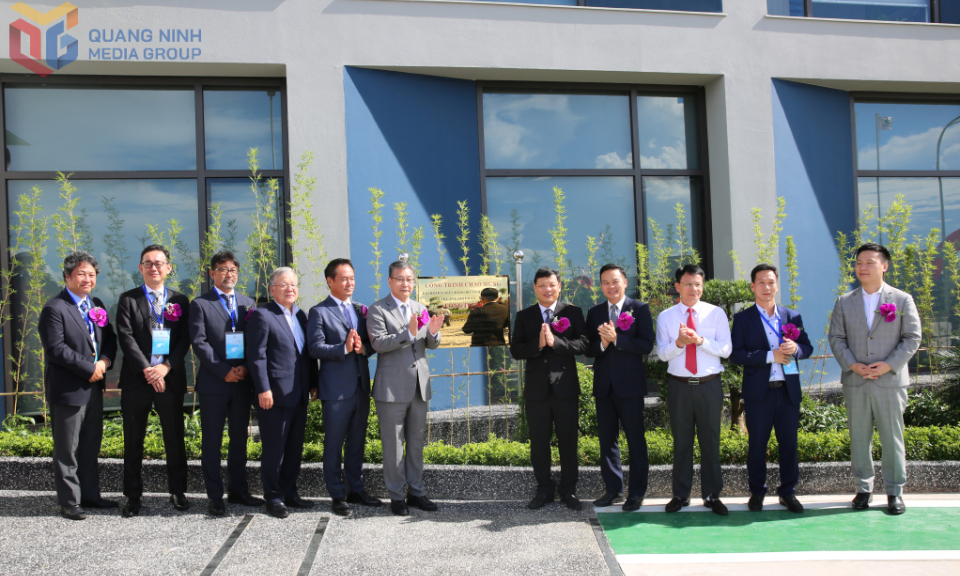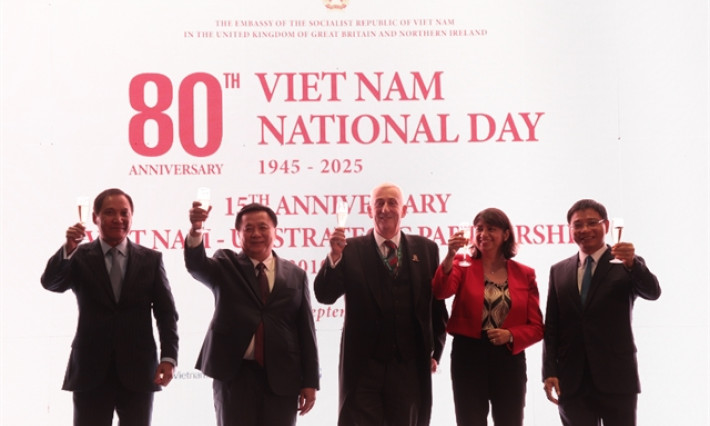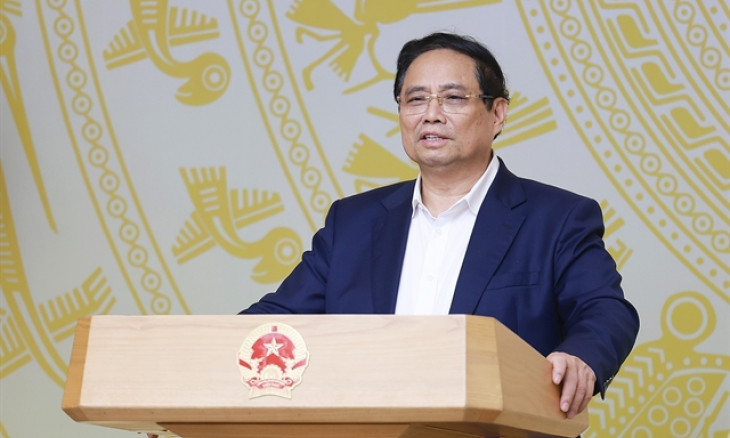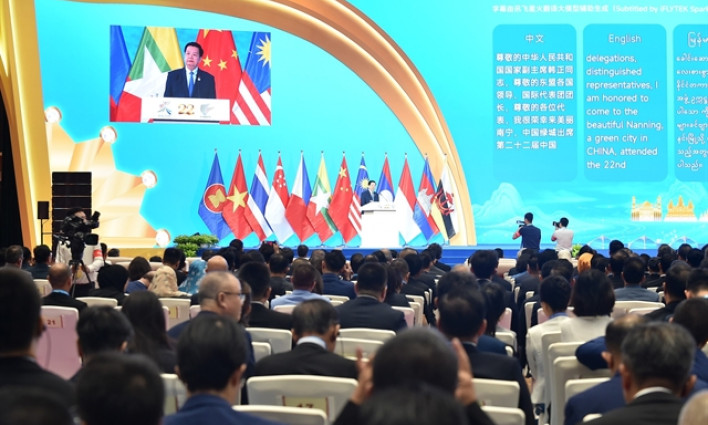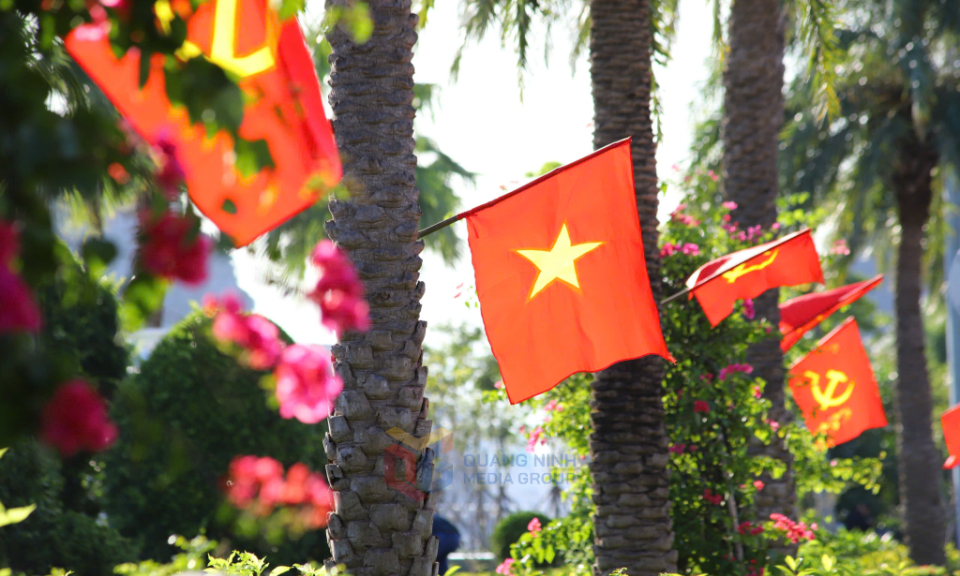Extended responsibilities should be included in handling radioactive waste: NA
The National Assembly (NA) has been discussing an amendment to the Law on Atomic Energy, which is expected to be adopted around mid-June.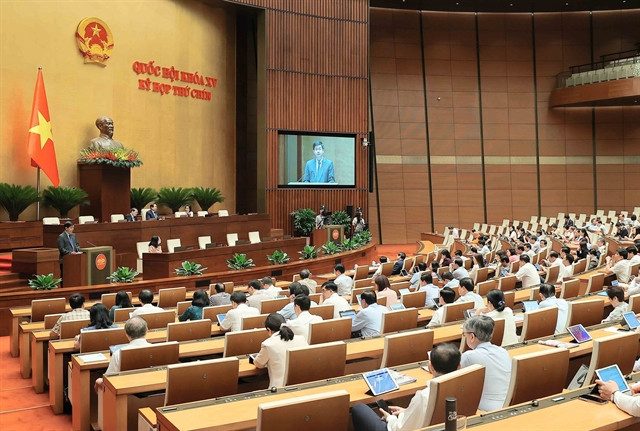
National Assembly (NA) deputies have proposed including ‘extended responsibilities’ for individuals and organisations generating radioactive waste, during their meeting on the draft amendment to the Law on Atomic Energy on Thursday.
NA deputy Nguyễn Tâm Hùng from Bà Rịa-Vũng Tàu Province said that radioactive waste sources must be held responsible even after the discharges were transferred to a third party. This measure is intended to prevent them from leaving the burden of environmental remediation to the State, especially important in cases where the business is dissolved, declares bankruptcy or intentionally avoids responsibilities.
Regarding the responsibilities of facilities managing radioactive waste or used reactors, Hùng stressed the need for clear criteria in site selection, which should not only be based on technical standards but also take into account social impact assessments and community consent in affected areas.
As part of the discussion, lawmakers also proposed adding preferential policies for people working in radioactive environments.
HCM City deputy Nguyễn Tri Thức also said that safety principles in the atomic energy sector should be specified by the Government, rather than rigidly codified in the law. This is because these regulations are often subject to changes due to scientific advancements, he said.
Thức added that the draft amendment should include provisions governing the sale and transport of radioactive substances.
Meanwhile, NA deputy Thạch Phước Bình from Trà Vinh Province noted that while the draft provides a general direction on promoting the development and application of atomic energy for socio-economic growth, no clear priorities or specific policies are identified for each sector.
Bình therefore recommended adding prioritisation for each sector using this type of energy.
The State should design a development roadmap based on the level of application, complexity and risk for fields such as healthcare (imaging, cancer radiotherapy and radiopharmaceuticals), which have high demand and direct impacts on public health.
Other industries to be considered include radiation sterilisation or radiographic inspection of welds, density and thickness measurements, which are commercially valuable and can improve product quality and productivity.
Meanwhile, the education sector and the establishment of research centres play an important role in training a high-quality workforce and supporting the development of core technologies.
Atomic power, as a long-term strategic energy goal, should be implemented gradually, ensuring adequate conditions in technology, human resources and legal infrastructure, he noted.
Addressing the meeting, Minister of Science and Technology Nguyễn Mạnh Hùng said that this amendment to the atomic energy law is being drafted based on the country’s strategic energy needs.
Globally, nuclear power currently accounts for 10 to 30 per cent of total electricity production. After a period of decline, many countries have resumed investing in this type of energy as part of their strategies to achieve high carbon neutrality targets.
The minister said: “Việt Nam plans to master nuclear technology, gradually establish a nuclear industry and develop nuclear energy applications for civilian use, including domestic production of equipment and radiation monitoring.”
In the first phase of its atomic energy development strategy, Việt Nam will prioritise domestic enterprises in developing equipment, applications and radiation monitoring capabilities.
Safety oversight in nuclear energy applications will be centrally managed by the State to ensure compliance with international standards, particularly those of the International Atomic Energy Agency.
The draft law includes a dedicated chapter on nuclear power plants and another on nuclear safety, which address full lifecycle security, the development of a nuclear safety and security culture, and the diversified social applications of nuclear energy, Hùng noted. The document also has dedicated sections for compensation for nuclear radiation damage, handling of nuclear radiation and mechanisms and principles for nuclear monitoring and inspection to ensure peaceful uses and compliance with international treaties.
The minister also said that the draft promotes the development of nuclear applications for civilian purposes such as medicine, science and socio-economic development, while also encouraging private funding on nuclear-related research and technology development to ease the burden on the State.

